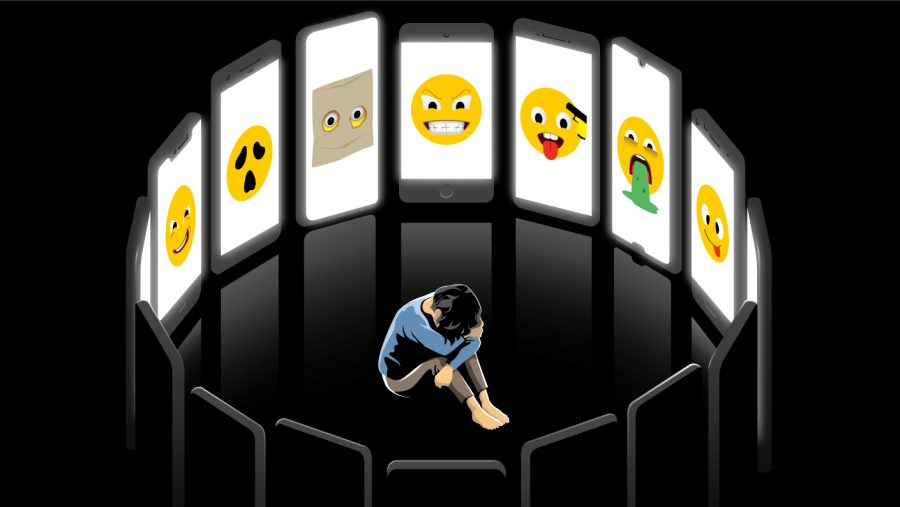Distance learning increases cyberbullying
December 2, 2020
Cyberbullying is bullying that takes place over digital devices like cell phones, computers, and tablets.
Cyberbullying can occur through SMS, Text, and apps, or online in social media, forums, or gaming where people can view, participate in, or share content. Cyberbullying includes sending, posting, or sharing negative, harmful, false, or mean content about someone else. It can include sharing personal or private information about someone else causing embarrassment or humiliation. Some cyberbullying crosses the line into unlawful or criminal behavior.
Online bullying can be particularly damaging and upsetting because it’s usually anonymous or hard to trace. It’s also hard to control, and the person being victimized has no idea how many people (or hundreds of people) have seen the messages or posts. People can be tormented non-stop whenever they check their device or computer. Sometimes, online bullying, like other kinds of bullying, can lead to serious long-lasting problems. The stress of being in a constant state of upset or fear can lead to problems with mood, energy level, sleep, and appetite. It also can make someone feel jumpy, anxious, or sad.
If someone is already depressed or anxious, cyberbullying can make things much worse. It’s not just the person being bullied who gets hurt. The punishment for cyberbullies can be serious. More and more schools and after-school programs are creating systems to respond to cyberbullying. Schools may dismiss bullies from sports teams or suspend them from school.
Some types of cyberbullying may violate school codes or even break anti-discrimination or sexual harrasment laws. So a bully may face serious legal trouble. Sometimes, people are afraid or not sure if they’re being bullied or not. So they don’t do anything about it. If you’re being bullied, harassed, or teased in a hurtful way — or know someone who is — you don’t have to suffer in silence. In fact, you absolutely should report any upsetting texts, messages, posts, or emails. The San Diego Unified school district has a zero tolerance policy on bullying.
The following links can assist students who are victims of bullying.
San Diego Unified Anti-Bullying Policy
San Diego Unified Bullying and Intimidation Complaint Form
San Diego Unified Witness Declaration
You can also contact the San Diego Unified Youth Advocacy Office


